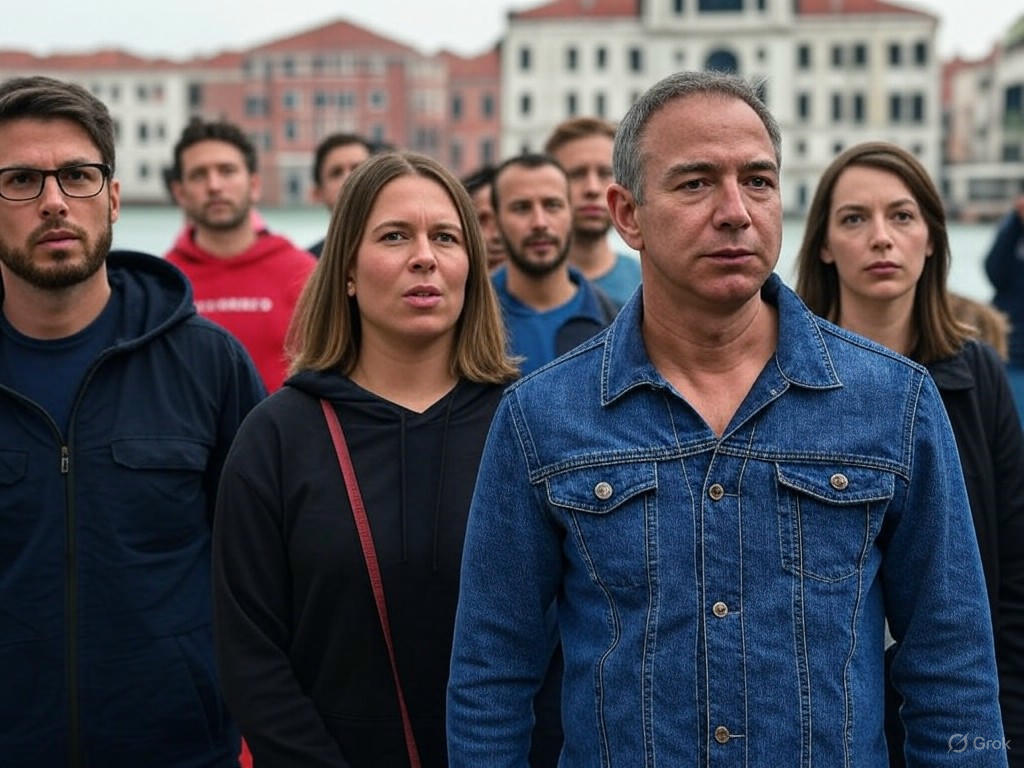The historic city of Venice, often celebrated for its timeless beauty and romantic canals, is at the center of a brewing storm as Amazon billionaire Jeff Bezos prepares to wed his fiancée, Lauren Sánchez, in a lavish ceremony next week. While the couple envisions a fairytale celebration in one of the world’s most iconic destinations, local activists are gearing up to protest what they see as the city’s transformation into a playground for the ultra-wealthy. Their planned disruptions are not just about one high-profile wedding but reflect deeper frustrations over Venice’s identity and future.
For years, Venetians have watched their city grapple with overtourism, skyrocketing property prices, and a dwindling local population. The influx of affluent visitors and celebrities has turned historic neighborhoods into exclusive enclaves, pricing out longtime residents and small businesses. Activists argue that events like Bezos’s wedding, which reportedly involves booking out entire hotels and private venues, exacerbate these issues by treating Venice as a mere backdrop for the elite. They claim the city is being reduced to a luxury commodity, losing its cultural soul in the process. Plans for peaceful demonstrations, including public gatherings and symbolic acts near the wedding venue, are in motion to draw attention to their cause. Their message is clear: Venice should belong to its people, not just the highest bidder.
The controversy surrounding the Bezos-Sánchez nuptials also shines a light on broader questions about wealth and privilege in culturally significant places. While the couple has not publicly commented on the planned protests, their choice of Venice as a wedding destination underscores the allure of such locations for the global elite. However, this charm comes at a cost to locals who feel sidelined by the economic forces these events unleash. City officials, meanwhile, are caught in a delicate balancing act—welcoming the economic boost from such high-profile gatherings while facing criticism for not doing enough to protect Venice’s heritage and community. Some residents worry that without meaningful intervention, their city risks becoming a hollow shell, more museum than home.
As the wedding day approaches, the world will be watching not just for glimpses of celebrity glamour but for how this clash between wealth and local sentiment unfolds. The activists’ actions may disrupt the festivities, but their ultimate goal is to spark a global conversation about the sustainability of tourism and the rights of residents in cities like Venice. Whether their protests will influence policy or simply serve as a momentary outcry remains to be seen. For now, the city of canals stands as a battleground where romance, riches, and resistance collide, reminding us that even the most picturesque places carry complex, often painful, stories beneath the surface.
